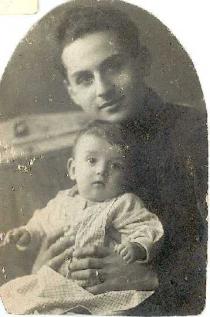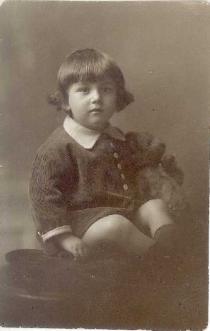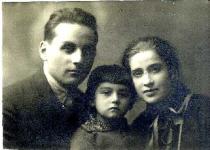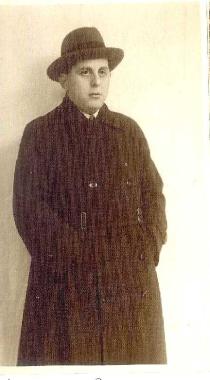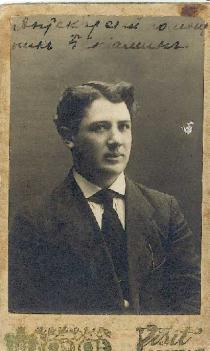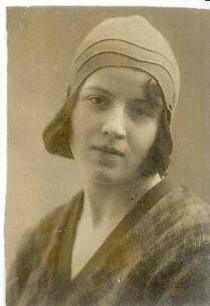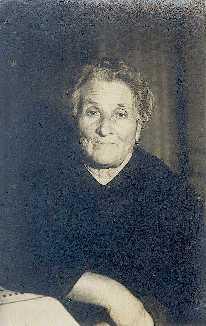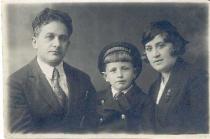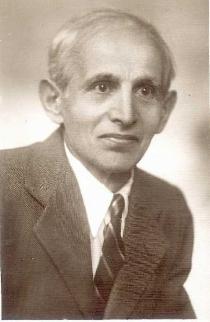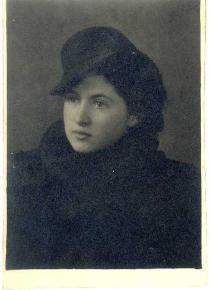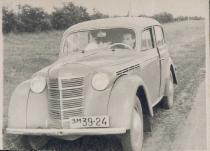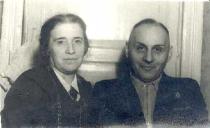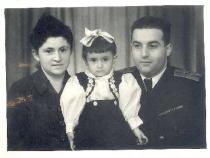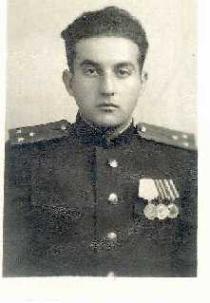This photo was taken in Leningrad in 1950, after the Great Patriotic War. Here you can see my father Zakhar Lervin and my mother This Slava Levina (nee Meerson).
When the World War II started, father was forty five. I thought that he was old. It is so funny to recall that now! Anyway he wasn't old and had to serve. He served in the troupes of MPVO (which means Local Anti Air-craft Defense). They called him up, when we didn't even know that the War started. His goal was to look, where the bombs fly to, and to message their directions. He was in barracks; he served on the factory, named after Volodarsky.
In 1942 he's got a dystrophy, he even could die, mother was a little bit stronger, but she wasn't very healthy either, and due to that fact that they were very sick, they evacuated them both (father lived at home in those times too) to Ural, so finally they happened to be in Kopeisk [small town on Ural], not very far from Chelyabinsk [big metallurgical center on Ural]. There was a military factory over there, they made there rackets of 'Katusha' type. Soon my father had to go to the army again. Just after he felt a little bit better, they put him in the railway troupes, and he served till the very end of the War, and he's been to the army a year after the War too. He finished the War somewhere on the Romanian front.
When he served in the army, there were many Uzbeks. And when they had a political information [short lecture, concerning political situation in the USSR and in the World], they gave him some Uzbek text, written with Russian letters. He read this text and understood nothing, but those Uzbeks understood everything he was talking about and they were very happy with him. It happened I passed not far from Tashkent [big city in the Middle Asia, capital of Uzbekistan], I crossed whole Russia. There was a town, and there was a military unit nearby. I didn't know that my father was just right there, and we didn't meet, if I knew about it, I would try to see him, because it was very important for me: I didn't meet him for ages and I wanted to see him so much!
Also in that Military college of radio electronics we had a department of fireworks, pyrotechnics and my mates went to Kopeisk. My mates mainly were from Leningrad, including Anatoly Tolstoy. I told him: 'Please come and visit my mother'. He came to visit and there they had such a dinner, such a holiday. Of course! I didn't see my parents for four years. Mother sent me socks and tissue, a real masterpiece.
My father served in the army, I served in the army, and my mother worked there, being a cashier, which was her civil profession. Father had a big authority; he had many war medals, for example 'For guarding Leningrad' and 'For Caucasus'. Mother had some medals as well: a medal 'For guarding Leningrad' and 'For forced labor'. She's got them for working during Leningrad blockade and on the military factory on Ural. And I have sixteen medals too.

